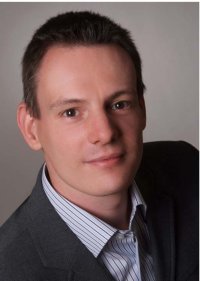Computer-aided technologies are omnipresent in many engineering disciplines. Be it the computer-aided design of a ship hull, the simulation-based analysis of the bending of an airplane wing, or the computer-driven optimization of the shape of a Formula One car, it is the aid of computational tools that helps engineers through their daily professional life. These tools are often available as ready-to-use software packages whose usage is taught to engineering students in the classroom. However, compute technologies change over time and so do the computational tools and the underlying mathematical algorithms. Today’s tools are often based on algorithms that have been initiated decades ago. It often takes years to mature novel algorithms from academic concepts to production-ready tools. It is therefore natural to take a look into the future of computing and start developing novel algorithms for next-generation computer-aided engineering tools today.
Quantum Computing – a game-changing technology
 Dr. rer. nat. Matthias Möller, assistant professor in the department of Applied Mathematics at TU Delft, aims to contribute to this development with the 4TU.CEE project “Think Q: Quantum Programming Education for Engineers”. Quantum computing is an emerging compute technology that has the potential to revolutionize the way we will be solving computational problems in the future. Quantum computers are so much different from today’s digital computers that it needs more than just the clever reimplementation of established algorithms on new computer hardware. While classical computers store information as bits which can attain values 0 and 1, quantum computers operate on so-called quantum bits (qubits) that can hold a superposition of 0 and 1 at the same time. To fully exploit this and other capabilities of quantum computers, requires a complete redesign of algorithms. What makes this step complicated are the many oddities of quantum computing. Here are just a few: In contrast to classical computers, where data can simply be written to and read from memory, the data stored in qubits needs to be deduced indirectly by a process called measurement. Moreover, it is not possible to duplicate the state of a qubit, e.g., to make a backup copy for later use (the well-known no-cloning principle of quantum computing). Finally, quantum algorithms typically produce probabilistic results. That is, they don’t return the exact solution to a problem with a single run of the algorithm but it needs multiple executions of the same algorithm to obtain the ‘correct’ answer hopefully with a sufficiently high probability. On the other side are the potential gains from using quantum computers, which hold the promise to solve some computational problems exponentially faster than this is possible with any digital computer.
Dr. rer. nat. Matthias Möller, assistant professor in the department of Applied Mathematics at TU Delft, aims to contribute to this development with the 4TU.CEE project “Think Q: Quantum Programming Education for Engineers”. Quantum computing is an emerging compute technology that has the potential to revolutionize the way we will be solving computational problems in the future. Quantum computers are so much different from today’s digital computers that it needs more than just the clever reimplementation of established algorithms on new computer hardware. While classical computers store information as bits which can attain values 0 and 1, quantum computers operate on so-called quantum bits (qubits) that can hold a superposition of 0 and 1 at the same time. To fully exploit this and other capabilities of quantum computers, requires a complete redesign of algorithms. What makes this step complicated are the many oddities of quantum computing. Here are just a few: In contrast to classical computers, where data can simply be written to and read from memory, the data stored in qubits needs to be deduced indirectly by a process called measurement. Moreover, it is not possible to duplicate the state of a qubit, e.g., to make a backup copy for later use (the well-known no-cloning principle of quantum computing). Finally, quantum algorithms typically produce probabilistic results. That is, they don’t return the exact solution to a problem with a single run of the algorithm but it needs multiple executions of the same algorithm to obtain the ‘correct’ answer hopefully with a sufficiently high probability. On the other side are the potential gains from using quantum computers, which hold the promise to solve some computational problems exponentially faster than this is possible with any digital computer.
LibKet – The universal quantum computing playground
Together with a team of students, Möller is developing the LibKet[1] quantum programming framework, which will make it possible to explore quantum computing practically by combining ready-to-use quantum algorithms and building blocks like Lego® bricks and executing them on one of the available quantum computers in the cloud. What makes LibKet different from other quantum computing frameworks is the focus on engineers – the potential future users – that are typically non-experts in quantum computing. Today’s quantum algorithms often lack practical applications since they are designed as technology demonstrators. Möller wishes to change this by working together with students and researchers from different engineering disciplines, in particular, from the faculties of aerospace engineering (AE) and mechanical, maritime and materials engineering (3mE) to identify possible applications that might be accelerated with the help of quantum computing. This often means breaking with traditions and starting all over again at the algorithmic drawing table. It’s not said that standard finite element analysis is the best methodology to simulate structural mechanics behaviour in the quantum-computing era. It’s not even clear if seeking one solution for one concrete problem is the right solution strategy given the probabilistic nature of quantum algorithms. The LibKet framework tries to provide the scientific playground for investigating these and other related questions within interdisciplinary MSc and PhD research projects.
The first publication from this project can be found here. The paper has been presented at the ICCS 2020 conference and it even made it into the news.
For more information have a look at the project’s website or contact Matthias Möller.
[1] http://ta.twi.tudelft.nl/nw/users/matthias/software_LibKet.html



